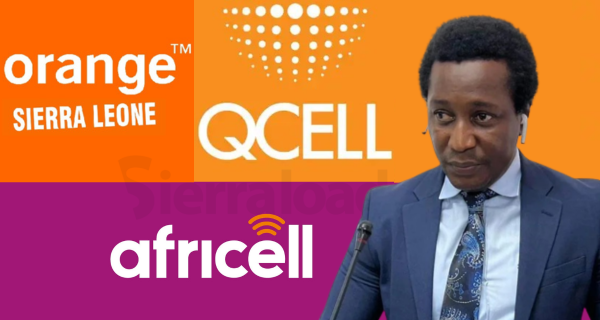The Native Consortium and Research Center has vehemently criticized the recent tariff increases in the telecom sector, labeling them as disproportionate and harmful to the ordinary consumer.
The consortium’s reaction comes in response to the new voice tariff, which surged by a staggering 70%, and the data tariff, which saw a 33% increment, both of which were officially announced on November 6, 2023.
Edmond Abu Jr., the Chief Executive Officer (CEO) of the Native Consortium, described the tariff adjustment as an “altar of so-called promos & bonuses trap.” He further warned the National Telecommunications Commission (NATCOM) and the Ministry of Communications to roll back the floor tariff and abandon the alleged conspiracy initiated by their predecessors under the new leadership.
The Native Consortium has been at the forefront of denouncing what they consider an inexcusable tariff hike that disproportionately affects ordinary citizens. CEO Edmond Abu Jr. pointed out that the rising cost of fuel is not a justifiable reason for tariff increments. He asserted that the majority of mobile network operators (MNOs) rely on solar energy to power their towers, minimizing fuel consumption, a fact corroborated by Africell on their website. This revelation sheds light on the consortium’s six-year-long legal battle and the year-long gag order imposed on the lead plaintiff by the court.
Adding to the concerns is the coercive push for a floor tariff, which compels other MNOs, including Qcell to raise their tariffs, making it difficult for them to offer more affordable rates to consumers.
The Native Consortium’s demand is clear: NATCOM and the Ministry of Communications must eliminate the floor tariff conspiracy and create an environment conducive to fair competition in a free-market economy, prioritizing consumer protection. This call for fairness follows the arrest and detention of Edmond Abu earlier this year, which prompted the withdrawal of a lawsuit against NATCOM regarding the floor tariff due to a loss of faith in the judiciary. The consortium now plans to take their grievances to the ECOWAS Court.
The consortium’s message to NATCOM and the ministry is a stern one: they must distinguish themselves from their predecessors, as the current situation raises doubts about a positive future for consumers in Sierra Leone.












Edmund Abu, should stop his stupid barking and focus on his slpp party…
He has been causing noise about data since 2019 and we are yet to see any decrease in the data or tariff system in stead is the opposite..
So una advice make inh focus pa in slpp party en stop fr dae add salt na we wound dem.
Edmund Abu, should stop this unnecessary barking and focus his slpp party…. Because he has been causing noise on this things for almost 4yrs and we are yet to see any decrease in the either the data or tariffs it the opposite instead.
So una tell for shut the fuck up en concentrate on inh slpp mende party
May God 🙏 continue to bless you sir.
Job well done ✅ Sir
Thank you sir may God continue to bless you
Stop the unnecesarry it venting, you has nothing to do to them
Qcell shouldn’t be coerced to follow the ladder as they’re not in line with the increase in price as it hampers their company, hence it’s yet to gain more strength among Sierra Leoneans. They should be given a choice and not coerced to follow what Orange and Africell are thirsty for. Welcome to Sierra Leone where government prioritize private sectors over citizen’s wellbeing. Una dae suffocate the citizen Dem bo noto so now
Solution is loosing its grip already. We are ready to adjust and move on with whatever that comes..